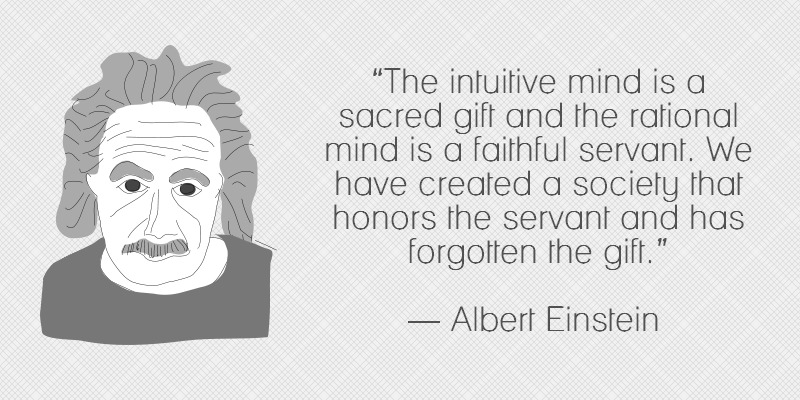Did you know that your mind can probably access knowledge in two distinct ways? There is the quick way via intuition, and the slow way via the rational mind, or intellect. Intuition involves an immediate grasp of the truth of some proposition. Philosophical, religious, anecdotal and even some experimental sources, suggest that the intuitive faculty is an important part of the mind, distinct from the intellectual faculty.
The neocortex, the brain's grey matter, was the most recent part of the human brain to have formed from an evolutionary perspective. It is responsible for higher order thought, beyond survival based thought of the older limbic brain. The neocortex is divided into two halves or hemispheres, the right and the left, which work together, but are each responsible for different functions.
The division of mind into intellectual and intuitive capabilities, is based on the right and left brain theory of mind. Reason is a left brain function, while intuition is a right brain function. The theory also suggests that each person favors one mode of thought over the other mode, but that some people have a good balance between right and left brain capabilities.
The problem is that society and the educational system have generally devalued right brain and intuitive activities, while encouraging left brain, rational activities and capabilities. Moreover, the rational mind is inherently active, seeking to make sense of things and impose its conclusions onto the individual.
Of course this isn't a bad thing, however, the rational mind inherently tries to trump its more passive counterpart, the intuitive mind. Intuitive knowledge comes in sudden, unexpected bursts, assuming that a person is even aware of their intuition in the first place. A more common term for intuition is a “gut feeling.”
Keep reading, as I will present a case for intuition in a left brain dominant world, and show you how you can strengthen your non-dominant hemisphere to achieve a more a more balanced way of thinking.










